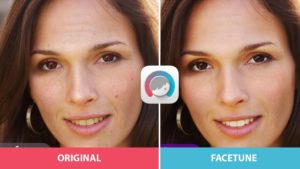Plastic surgeons are sounding the alarm on a disturbing trend that’s emerged with the growing popularity of social media: patients seeking cosmetic surgery to resemble how they see themselves in Snapchat filters.
The phenomenon, dubbed “Snapchat dysmorphia,” has people requesting fuller lips, bigger eyes, or a thinner nose in order to look like the filtered or photo-edited versions of themselves.
.W
Watch
Glossary
- dysmorphia – a condition in which someone falsely believes that there is something seriously wrong with their appearance
- lens – a piece of transparent substance, usually glass, having two opposite surfaces either both curved or one curved and one plane, used in an optical device in changing the convergence of light rays, as for magnification, or in correcting defects of vision
- surge – a sudden powerful forward or upward movement, especially by a crowd or by a natural force such as the tide
- hooked on sth – very interested and enthusiastic about something
- rhinoplasty – plastic surgery performed on the nose
- imperfection – a fault, blemish, or undesirable feature
- to get rid of sth – to throw away or dispose of something you no longer need or want
- adolescent – (of a young person) in the process of developing from a child into an adult
- on the cusp of sth – at the point when something is about to change to something else
- self-esteem – confidence in one’s own worth or abilities; self-respect
Watch and listen
Answer the questions below.
- What is the increase (in %) between patients mentioning selfies as their motivation for plastic surgery in the last 3 years? (0:25)
- What do people want when they post selfies? (1:25)
- How can you get rid of imperfections in your skin? (3:00)
- What do ethical plastic surgeons do? (3:30)
- What is the important thing to remember when taking selfies? (4:50)
Practice Makes Perfect
The following is a partial transcript of the video. Fill in the blanks with the correct modal verb in brackets. Go to CBS News to find out more.
“This is an alarming trend because those filtered selfies often present an unattainable look and are blurring the line of reality and fantasy for these patients,” researchers from Boston University School of Medicine’s Department of Dermatology wrote in a recent article, published in the medical journal JAMA Facial Plastic Surgery.
[…]
“Now, it is not just celebrities propagating beauty standards: it is a classmate, a coworker, or a friend. The pervasiveness of these filtered images 1._____ take a toll on one’s self esteem, make one feel inadequate for not looking a certain way in the real world,” the doctors write. They say it 2._____ even “act as a trigger” and lead to the development of body dysmorphic disorder, or BDD, a mental health condition in which a person is preoccupied with a nonexistent or minor flaw in their physical appearance.
[…]
Fueling that trend 3._____ be the fact that selfies present a somewhat distorted view of a person’s face. Research published in March showed that the close proximity of the camera 4._____ distort facial features “like a funhouse mirror,” for example by making the base of the nose appear approximately 30 percent wider. Such distortions 5._____ potentially prompt prolific selfie-takers to develop a skewed self-image.
[…]
The Boston University authors warn that impact of digitally-perfected selfies 6._____ be especially harmful to young people.
[…]
The authors argue that doctors need to be aware of the implications social media 7._____ have for their patients’ self-esteem and overall health.
“It 8._____ be argued that these apps are making us lose touch with reality because we expect to look perfectly primped and filtered in real life as well. Filtered selfies especially 9._____ have harmful effects on adolescents or those with BDD because these groups 10._____ more severely internalize this beauty standard,” they write, adding that it’s important for health care providers to take this into consideration when treating and counseling patients.
[…]
Cangello said there’s also a few things users of the filtering apps should keep in mind. “Fortunately, I think a lot of people do use [the filters] for fun, and that’s a good thing,” he said. “The concern, of course, is when someone who does have a problem with self-image starts to use these things. You want people to know that they are who they are and they 11._____ be comfortable with that… and while there are certain things we 12._____ fix, some of the things that technology 13._____ fix in an image isn’t realistic to have happen by an actual surgeon or physician.”
Answers:
1. can 2. may 3. may 4. can 5. could 6. may 7. can 8. can 9. can
10. may 11. should 12. can 13. can
.
Explore it more on:
The Guardian: Faking it: how selfie dysmorphia is driving people to seek surgery
and WATCH
(855)





